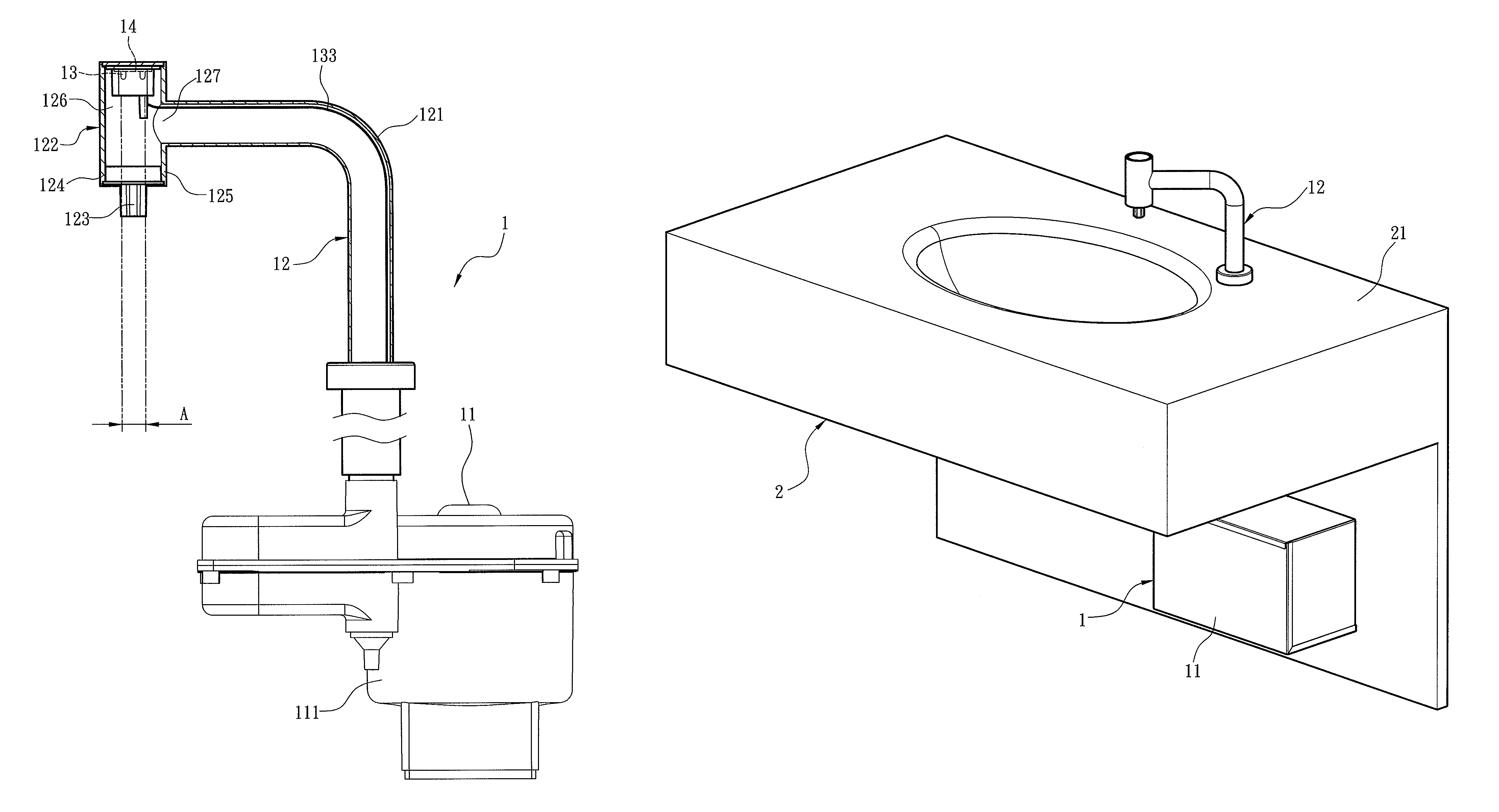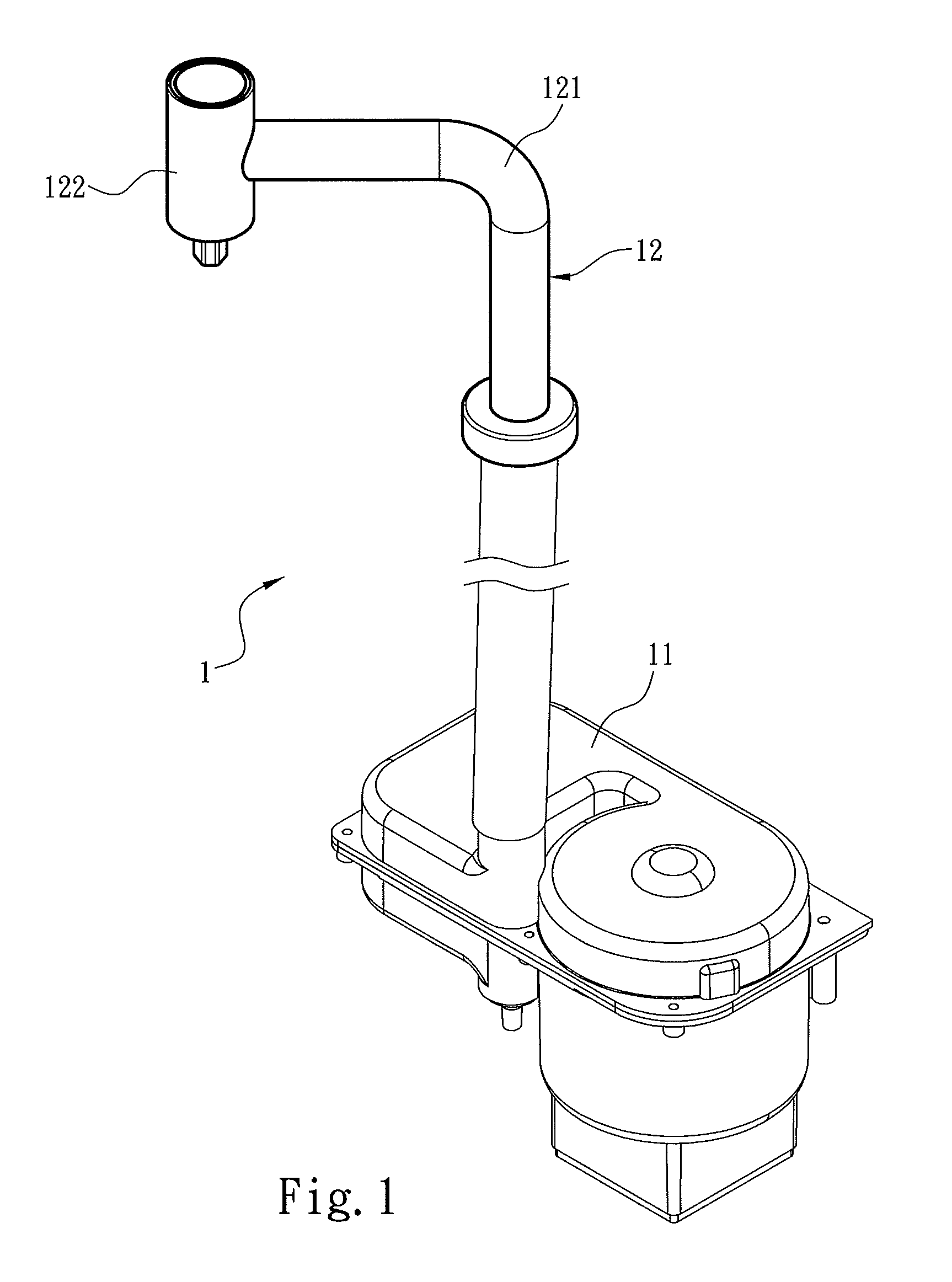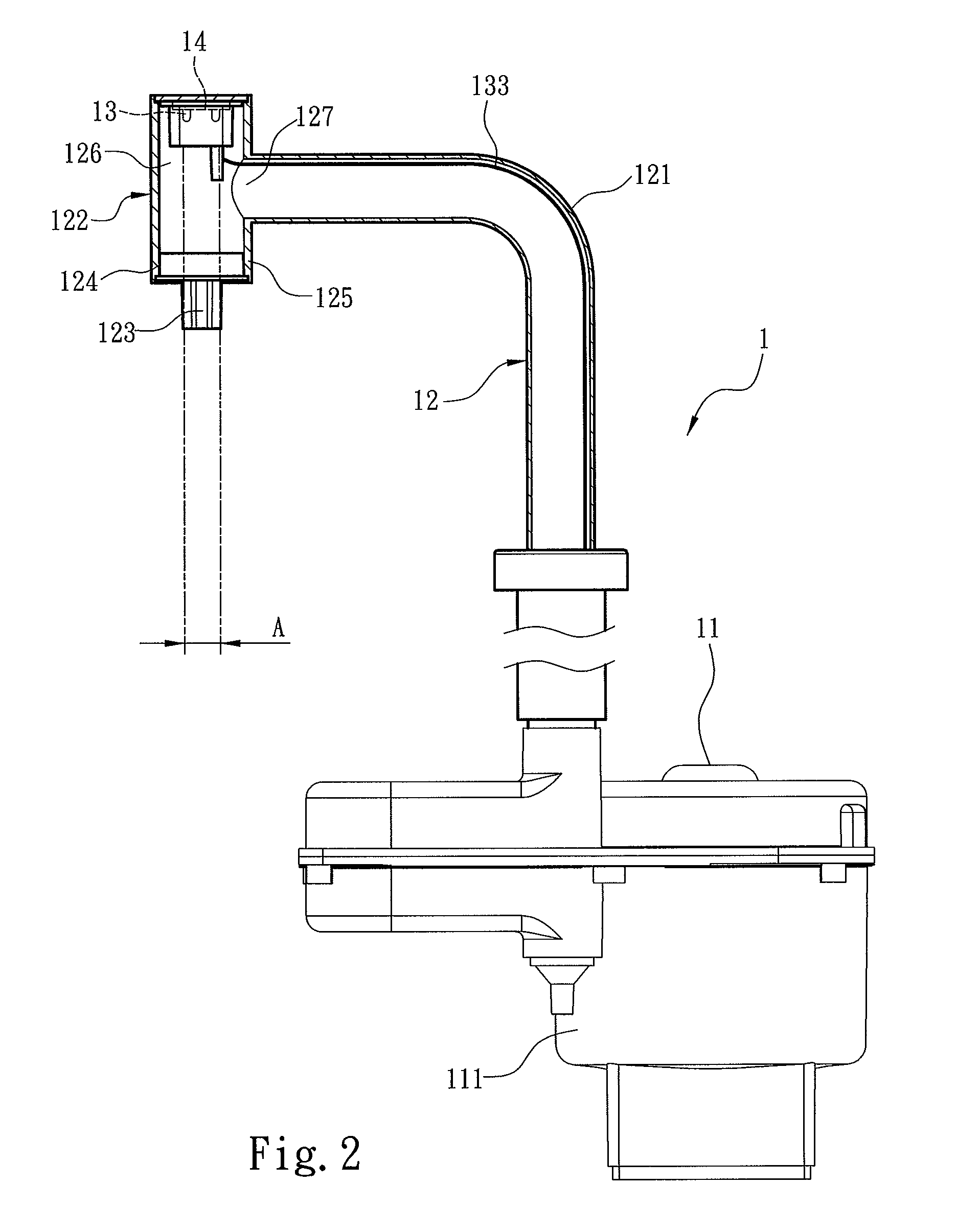Auto-sensing hand dryer
a hand dryer and auto-sensing technology, applied in the field of auto-sensing hand dryers, can solve the problems of inconvenient use of hand dryers, insufficient sensing capability of infrared sensors, and paper towels that are disposed after one-time use that do not meet the green requirements of the world today
- Summary
- Abstract
- Description
- Claims
- Application Information
AI Technical Summary
Benefits of technology
Problems solved by technology
Method used
Image
Examples
Embodiment Construction
[0019]Referring to FIGS. 1 and 2, an auto-sensing hand dryer 1 of the present invention includes an airflow generating device 11, a guiding duct 12 connected to the airflow generating device 11, and a sensing unit 13 disposed in the guiding duct 12 and electrically connected to the airflow generating device 11. The airflow generating device 11 generates a hand drying airflow. The guiding duct 12 obtains the hand drying airflow from the airflow generating device 11 and guides a direction of the hand drying airflow. The sensing unit 13 detects a user hand to determine whether the airflow generating device 11 is to generate the hand drying airflow. Referring to FIG. 4, in the embodiment, the airflow generating device 11 of the auto-sensing hand dryer 1 is disposed below a washbasin 2, and the guiding duct 12 connected to the airflow generating device 11 may be connected to a platform 21 of the washbasin 2 from below the washbasin 2.
[0020]Referring to FIGS. 2 and 3, in the embodiment, t...
PUM
 Login to View More
Login to View More Abstract
Description
Claims
Application Information
 Login to View More
Login to View More - R&D
- Intellectual Property
- Life Sciences
- Materials
- Tech Scout
- Unparalleled Data Quality
- Higher Quality Content
- 60% Fewer Hallucinations
Browse by: Latest US Patents, China's latest patents, Technical Efficacy Thesaurus, Application Domain, Technology Topic, Popular Technical Reports.
© 2025 PatSnap. All rights reserved.Legal|Privacy policy|Modern Slavery Act Transparency Statement|Sitemap|About US| Contact US: help@patsnap.com



